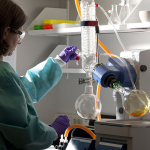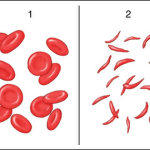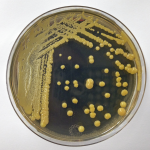My conversation with Lars Larson covered some new medical breakthroughs, from desperately-needed new antibiotics to the rapidly expanding applications of Artificial Intelligence (AI) in medicine.
antibiotic resistance
The advances in medical practice since World War II have been stunning, and they continue apace. Here, I anticipate some that I think are likely to make significant contributions in the near future.
The advances in medical practice since World War II have been stunning, and they continue apace. Some of the existing and anticipated ones are discussed here and in Part 2.
A recent article in USA Today proclaimed that we are *this* far away from no longer having working antibiotics, a cataclysmic development that would pose "an existential threat for modern medicine." Is this really true? Let's ask Dr. David Shlaes, one of the foremost experts in the world of antimicrobial science.
In my experience, orthopedic surgeons are the most fanatical of all surgeons regarding infection prevention. It makes sense since much of their work involves implanting hardware into bones – and an infection in a bone, let alone in the presence of hardware, is very tough to eradicate. So, when a new study looks at orthopedic thought on infection prevention, it is worth considering.
Pull incentives to fix the broken antibiotic marketplace – like a subscription payment of several billion dollars per needed antibiotic – are finally going to be implemented in 2032. What happens then? But before we get there … a brief word about blogging on Google’s Blogger.
The U.S. dithers, Europe ponders and the extinction of life-saving antibiotics continues apace.
Will there be pull incentives to support the broken antibiotics market? Where is Biden?
We learn more and more every day about the bacteria, viruses, and fungi that live within us and support us. It's our own personal world: the microbiome. And researchers have identified ecologic niches with varying microbial occupants. And it seems that cities have unique microbiomes, too.
Are there methods that can be employed to ensure the commercial success of antibiotic biotech? ACSH advisor Dr. David Shlaes has his doubts.
Fish + bacteria = 25% mortality.
Fish + bacteria + rocks = 5% mortality.
What magic lies within the rocks? What can farm-raised fish teach us?
What would happen if we approached antibiotic resistance with the same fervor that we have for covid? Is there a reason why we should not?











